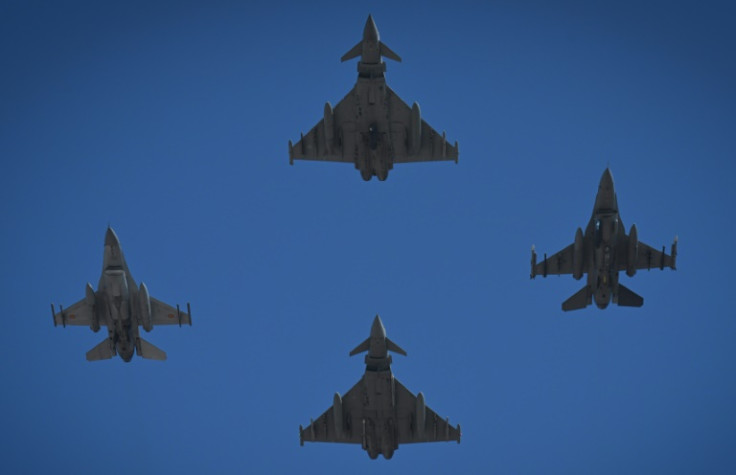
EU officials on Tuesday unveiled an ambitious proposal to massively boost weapons production and procurement in the bloc to shift from a reliance on US arms and in reaction to Russia's invasion of Ukraine.
"We must take more responsibility for our own security, while, of course, remaining fully committed to our NATO alliance," said European Commission Vice President Margrethe Vestager.
"We need to get that transatlantic balance right, irrespective of electoral dynamics in the US," she said, adding: "An improved ability to act will make us a stronger ally."
The commission's European Defence Industrial Strategy aims, over the long term, to give incentives to European arms manufacturers to invest more, make their production more agile and -- for the first time -- to collectively catalogue what they have available.
The question of financing the ambitious initiative, though, is problematic for a continent that has trimmed defence investment for decades following the collapse of the Soviet Union.
EU internal market commissioner Thierry Breton has spoken of an ultimate need for some 100 billion euros ($110 billion) for the European Union to rival the Pentagon and US defence industry.
To kickstart the project, the commission plans to set aside 1.5 billion euros from the EU's current budget that runs to 2027 -- an amount Vestager acknowledged "is not a lot of money" given the scale of the initiative.
"But it can still work as an incentive, as a bonus... because the real funding for a stronger defence comes from member states and that funding will increase over the years to come," she said.
Some countries, such as France, back an idea of EU bonds to finance a buy-European weapons production base, similar to what was done to finance economic recovery from the Covid pandemic.
But "frugal" countries such as Germany are against that, concerned it will centralise budget power in Brussels and override national sovereignty over defence issues.
The spur for the proposed defence industry strategy was Russia's full-on invasion of Ukraine two years ago.
EU officials say the bloc is now facing a "new security paradigm" with an expansionist Russia which now has a wartime economy.
"To counter the return of high-intensity war on our border, we have decided to kick up a gear," Breton told reporters.
While the EU and EU countries have supported Ukraine financially and with military weapons and equipment, arms production has come up short with the bloc missing a target to give Kyiv a promised one million artillery shells.
Breton said that, helped by an existing EU Act in Support of Ammunition Production, the bloc was now providing Ukraine around 80,000 shells per month.
Vestager said that, since Russia's February 2022 invasion of Ukraine to June last year, the EU's 27 member countries spent more than 100 billion euros on defence buys.
"Almost 80 percent of that was spent outside of the European Union, and the US alone accounted for more than 60 percent of this spending. This is no longer sustainable," she said.







